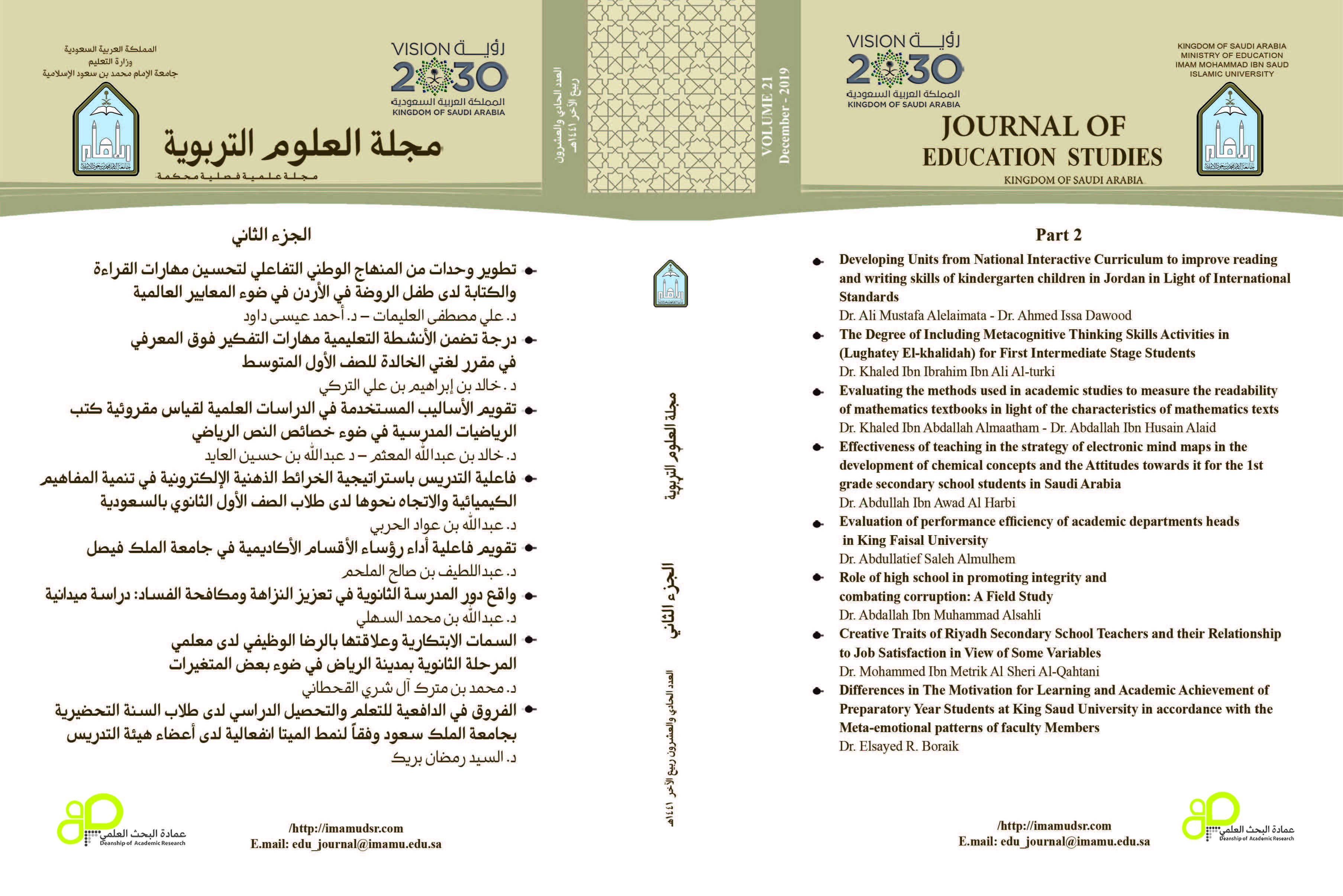Creative Traits of Riyadh Secondary School Teachers and their Relationship to Job Satisfaction in View of Some Variables
Keywords:
creativity traits/characteristics, academic major, secondary/high stage, Riyadh City.Abstract
The study aims to investigate the relationship between Riyadh secondary school teachers’ creative traits and their job satisfaction. It explores the differences in creativity traits and job satisfaction among high school teachers in Riyadh which could be attributed to the instructor’s academic major and the length of his teaching experience. To that end, the author selected 474 teachers randomly to participate in the study. The researcher adopted the Creative Personal Traits List prepared by Khair-Allah (1981) which is modified and applied to the Saudi context by Al-Mafraji (2000), and a Job Satisfaction Scale prepared by the author. Results of the study revealed that there is a positive direct relationship that is statistically significant at the level of 0.01 and below between the participants scores on the Creative Personal Traits List and their scores on the Job Satisfaction Scale (overall score and all sub-scales except one: ‘satisfaction about the teaching profession’). There were statistically significant differences at the level of 0.05 and below among the average scores of Riyadh secondary school teachers on two subscales of the Job Satisfaction Scale (satisfaction regarding appreciation and satisfaction regarding job growth and career development) that can be ascribed to the academic major (scientific stream, literary stream) in favor of the literary major teachers. Findings of the study highlighted a list of important recommendations such as the need to design training programs for teachers to develop their creativity characteristics, to improve their financial position, to elevate their social and economic status and to provide them with appropriate work conditions.




